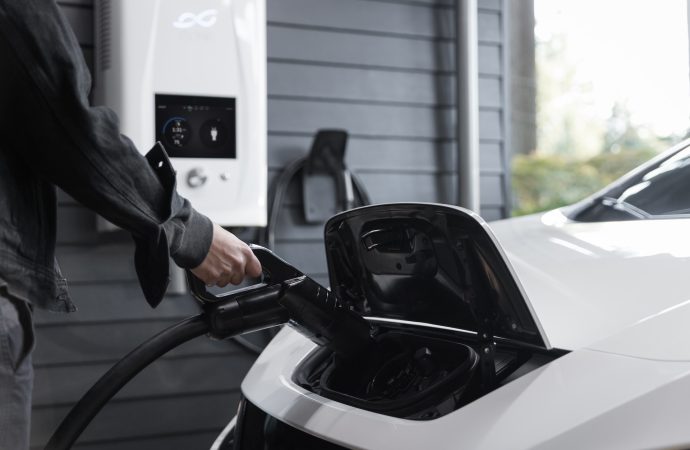Introduction The European Union (EU) has witnessed a groundbreaking revolution on its roads as electric vehicle (EV) sales soar to new heights. In a remarkable surge, EU electric vehicle sales have skyrocketed by a staggering 71%, largely fueled by government subsidies. This surge in EV adoption marks a significant turning point in the quest for
Introduction
The European Union (EU) has witnessed a groundbreaking revolution on its roads as electric vehicle (EV) sales soar to new heights. In a remarkable surge, EU electric vehicle sales have skyrocketed by a staggering 71%, largely fueled by government subsidies. This surge in EV adoption marks a significant turning point in the quest for sustainable transportation and paves the way for a cleaner, greener future. In this article, we will delve into the factors driving this impressive growth, explore the impact of subsidies on electric vehicle sales, and discuss the implications for the EU’s sustainable mobility goals.
A Catalyst for Change: Government Subsidies
One of the primary drivers behind the remarkable surge in EU electric vehicle sales is the generous support provided by government subsidies. Acknowledging the importance of transitioning to eco-friendly transportation, EU member states have implemented a range of financial incentives to encourage consumers to embrace electric vehicles. These incentives include purchase grants, tax credits, and reduced charging costs, making EVs more accessible and affordable for the average consumer. The availability of government subsidies has played a pivotal role in motivating individuals to make the switch to electric vehicles, ultimately fueling the significant sales growth.
Environmental Consciousness and Climate Commitments
The surge in EU electric vehicle sales is not only a testament to the effectiveness of subsidies but also a reflection of the increasing environmental consciousness among consumers. With mounting concerns over climate change and a pressing need to reduce greenhouse gas emissions, electric vehicles offer a sustainable solution to traditional combustion engine vehicles. EU member states, being at the forefront of climate action, have set ambitious emission reduction targets and stricter regulations on vehicle emissions. The growing awareness of these environmental challenges, coupled with the availability of subsidies, has propelled individuals and businesses alike to embrace electric vehicles as a way to reduce their carbon footprint and contribute to a more sustainable future.
Expanding Charging Infrastructure
A robust and widespread charging infrastructure is vital to support the surge in electric vehicle sales. Recognizing this, the EU has made substantial investments in expanding the charging network across the region. Public charging stations, fast-charging networks, and home charging solutions have become more prevalent, providing EV owners with the convenience and peace of mind they need for their daily commuting and long-distance travel. The availability of a reliable and extensive charging infrastructure has alleviated range anxiety concerns and has been a crucial factor in boosting consumer confidence and driving the adoption of electric vehicles.
Technological Advancements and Model Diversity
The rapid advancements in electric vehicle technology, coupled with a growing variety of electric models available in the market, have further propelled the surge in EV sales within the EU. Automotive manufacturers have been investing heavily in research and development, resulting in significant improvements in battery technology, charging infrastructure, and overall vehicle performance. Moreover, the market now offers a wide range of electric models, from compact cars to SUVs and luxury vehicles, catering to diverse consumer preferences. This increased diversity and improved technology have played a pivotal role in attracting a larger consumer base and expanding the electric vehicle market.
Economic and Employment Opportunities
The surge in electric vehicle sales not only benefits the environment but also brings about substantial economic opportunities. The growing demand for electric vehicles has created new jobs and stimulated investments in various sectors of the economy. From manufacturing electric vehicles and producing advanced batteries to developing charging infrastructure and related technologies, the electric mobility sector has become a significant contributor to economic growth and innovation. The electric vehicle market presents an opportunity for job creation and economic development, aligning with the EU’s goal of building a sustainable and resilient economy.
Overcoming Challenges for Sustained Growth
While the surge in EU electric vehicle sales is undoubtedly an achievement, several challenges must be addressed to ensure sustained growth and maximize the environmental benefits. One key challenge is the need for further expansion and standardization of the charging infrastructure. Efforts should be made to enhance the accessibility and interoperability among charging networks, ensuring seamless charging experiences for EV owners across different regions. Additionally, continued investment in research and development is crucial to advancing battery technology, increasing energy storage capacity, and reducing the overall cost of electric vehicles. Innovation in renewable energy sources and smart grid integration will also play a vital role in supporting the transition to electric mobility and creating a sustainable energy ecosystem.
Conclusion
The surge in EU electric vehicle sales, driven by government subsidies, marks a significant milestone in the pursuit of sustainable transportation. The availability of financial incentives, combined with increasing environmental consciousness, expanding charging infrastructure, and technological advancements, has propelled the adoption of electric vehicles to new heights. The EU’s commitment to sustainable mobility is demonstrated through its efforts to encourage electric vehicle adoption and achieve emission reduction targets. By addressing challenges such as charging infrastructure expansion and technological innovation, the EU can further accelerate its transition towards a future of sustainable transportation, reducing carbon emissions, and creating a cleaner and greener environment for generations to come.

















Leave a Comment
Your email address will not be published. Required fields are marked with *